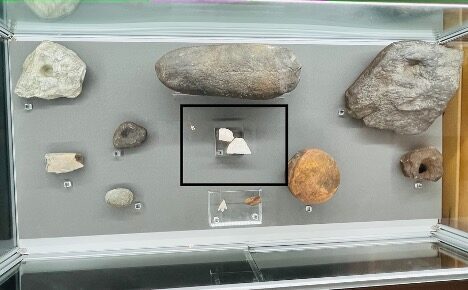Ona and Beskdira: Even the stones tell the tragic story
Beskdira and Ona are two small villages that were burnt to ashes, one after the other, over the course of just two days. Both are close to Eritrea’s second largest city, Keren; Beskdira is located about 20 kilometres northeast of Keren and Ona is approximately 2 kilometres outside of the city.
On 30 November 1970, heavily armed Ethiopian soldiers terrorised the village, killing over 120 people and wounding countless others. The colonial soldiers gathered the villagers inside a mosque and proceeded to slaughter the unarmed civilians using semi-automatic guns. Survivors of the tragedy recount streams of blood flowing down the mosque’s steps and charred bodies piled on top of one another.
Barely a day after the carnage had unfolded in Beskdira, Ona became the next target. The village was burned to ashes and its residents massacred indiscriminately; over 800 villagers were brutally murdered in a matter of hours and so many others sustained permanent wounds, both physical and emotional. Over half a century later, the survivors still experience the trauma of the massacre, as they watch their children struggling to rebuild a life out of their ancestors’ ashes.
The carnage of Beskdira and Ona provides us with just a glimpse of the colonial devastation wreaked upon the Eritrean people, which is described in the following chilling words of the veteran of Eritrea’s 30-year armed struggle for independence and mother of nine, Zeinab Yassin – popularly known as Mama Zeinab [1]:
You’ve seen our country. Now you know why we want to be free. The Ethiopians came, they bombed our villages, they slaughtered our cattle and burned our children. Everything is burning now. Even the stones are burning.
The apocalyptic images of the two villages’ destruction and the inhabitants’ suffering remain fresh in the minds of survivors. Mama Zeinab’s evocative poem (below) captures some of the suffering as well as the courage of the Eritrean people in their struggles against colonisation [2].
I’m burning
To boil you
Like raw,
Delicate meat
In liberation.
But I’m too ancient
For the army.
Too helpless
To be the minister
Of education
And too bold
In this damn world.
Despite the unimaginable horrors suffered by the Eritrean people, we hold on to these memories as they form part of our history. This is why we, the authors of this blog, chose to donate to the Scottish Crannog Centre some quartz stones taken from inside the mosque in Beskdira, where over 120 people were killed. Our intention was to give the stones a new place to settle and to tell their story.

Through its artefacts dating back over 2,500 years and its precolonial remains, the Crannog reminds us of “the unfinished project of humanity that was interrupted by colonisation” [3]. A new form of humanity appears to be emerging at the Crannog: one that is non-exclusive and non-violent. We hope that the quartz stones will evoke in visitors’ minds what it is like to live in the ruins of colonial structures that the British State helped create.
For us, the quartz stones are reminders of the charred bodies, the burnt-out villages, and the unimaginable pain of those who died. However painful and traumatising these might sound, the stories of human suffering are part of our history and upbringing; we cannot abandon the past as it is so present, not only in our memories but also in our day-to-day lives. For those of us who have left our homelands forever, it often feels like we are living in a constant state of homelessness. Yet, memories keep the feeling of home alive. The stones accompany us, speak to us in silence, through their presence and the memories they contain.
Authors: Hyab T. Yohannes & Ghergishu Awte
References:
[1] Roy Pateman, Eritrea: Even the Stones Are Burning (The Red Sea Press, 1998).
[2] Charles Cantalupo, War and Peace in Contemporary Eritrean Poetry (Dar es Salaam: Mkuki na Nyota publ, 2009), 89.
[3] A Trip to a Crannog, Hyab Yohannes, 2022
